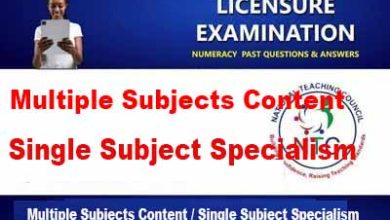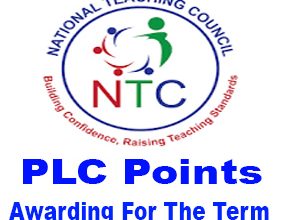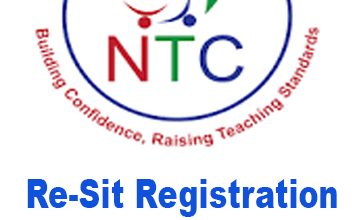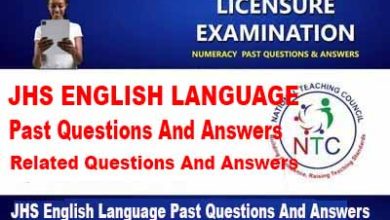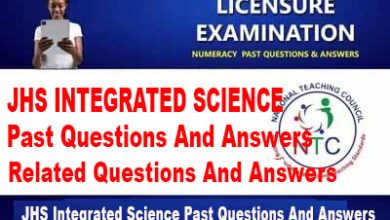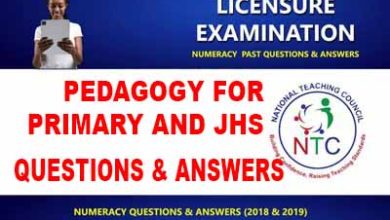NTC Licensure Exams JHS English Language Past Questions And Answers
GTLE Content Areas Exams JHS English Language Past Questions And Answers
NTC Licensure Exams JHS English Language Past Questions And Answers 2
NTC Licensure Exams JHS English Language Past Questions And Answers
NTC Licensure Exams Pedagogy For Primary And JHS Past Questions And Answers 1
NTC Licensure Exams Pedagogy For Primary And JHS Past Questions And Answers 2
NTC Licensure Exams Pedagogy For Primary And JHS Past Questions And Answers 3
NTC Licensure Exams Pedagogy For Primary And JHS Past Questions And Answers 4
NTC Licensure Exams Pedagogy For Primary And JHS Past Questions And Answers 5
NTC Licensure Exams Pedagogy For Primary And JHS Past Questions And Answers 6
Read the passage below and answer questions 1-7.
Jingala Sukuma woke up early in the morning on the day he was going to see his son at St. Boniface School. After washing his face and rinsing his mouth, he made a fire in his house. Then he started collecting the things he was going to carry with him on his journey to St. Boniface, throwing a spare waist coat, an old blanket, a loin cloth and some raw sweet potatoes indiscriminately into a bag of satin cloth. It was still very early in the morning. The rest of Jimbale was still asleep early in the morning. The rest of Jimbale was still asleep but the birds in the wide outside were just beginning to welcome yet another day.
He was 55, small, but very strange for his age. He had a high forehead, a pair of shrew little eyes, a more-than-average nose, and a very fine set of tribal marks on his cheeks which were now lightly covered by short thin grey beard. He laughed, often throwing his head back and showing the complete absence of his front teeth. He walked slowly with his head low, as though the full weight of his age was all concentrated around his shoulders. Lately, it had been observed that he was becoming hard of hearing so that he was more likely to shout when speaking. He insisted that others do likewise when speaking to him.
He wore a black cloth tied around his waist and kept secure by an old scout belt. From one of the two rings attached to the belt hung a bunch of keys which he had collected on various occasions in the course of his life, but whose sole function was now decorative. He had a black waistcoat with a silver chain, now grey with age, dangling at a slant across the front. Attached to one end of the chain was a small black travelling clock which had long since ceased to function. He had no shirt and no one could remember ever having seen him in one.
As far as his fellow villagers were concerned, Jingala had become a precious antique. The mere fact that he had attained the age of 55 and so become “a very old man indeed” was to them an achievement of great proportions. They treated him with profound respect and awe, regarding him as some sort of demi-god, a sacred thing, one who knew the whole of the past and half of the future.
“I’ve had my days,” Jingala always said whenever he was asked to comment on his life thus far, “I’ve had my days and I’ve lived them well”. To children, however, he was always the same delightful old man, the master story-teller who seemed to have been created for the purpose of amusing or frightening them with the strangest of rules. In this appraisal of him, the children were not entirely wrong as Jingala himself confessed that one thing that delighted him most of his life was being able to make up all kinds of stories, most of them in parables, in order, as he puts it, to prepare people for a better understanding of their roles in life.
Besides his age, Jingala also had a distinction of having remained a widower for a period of eight years, so setting a new record for the village which beat the previous one by as many as three years. During these years, he had lived mostly alone in his two-roomed mud house, looking after his cows, growing his own food, and occasionally visiting his many relatives scattered all over the district. He had one child, his son Gregory, about whom he talked with tender affection, describing him as being “made after my own heart”.
It was to protest vehemently against his only son’s intention to take to priesthood that was to bring Jingala face to face with the authorities of Gregory’s school. As he set out for Boniface, he kept saying to himself, out aloud, “No, not my son, he must not become a priest. He must marry and produce children to keep my memory marching on long after my death”.
He looked every now and then at his travelling clock. Ridiculous?
Adapted from Jingala by Legson Kayira.
NTC Licensure Exams JHS English Language Past Questions And Answers 2
NTC Licensure Exams JHS English Language Past Questions And Answers
NTC Licensure Exams Pedagogy For Primary And JHS Past Questions And Answers 1
NTC Licensure Exams Pedagogy For Primary And JHS Past Questions And Answers 2
NTC Licensure Exams Pedagogy For Primary And JHS Past Questions And Answers 3
NTC Licensure Exams Pedagogy For Primary And JHS Past Questions And Answers 4
NTC Licensure Exams Pedagogy For Primary And JHS Past Questions And Answers 5
NTC Licensure Exams Pedagogy For Primary And JHS Past Questions And Answers 6
1. The expression “The rest of Jimbale was still asleep”, underlined in the passage suggests that …
A. everyone in the town was asleep.
B. everyone in the town was resting.
C. it was not yet daybreak……………
D. the town was quiet.
2. Jingala always insisted that people spoke loudly to him because he………
A. was suffering from a partial hearing loss…………
B. enjoyed being spoken to in a loud manner.
C. had total hearing impairment.
D. was a man who wanted to be heard.
3. The two achievements for which Jingala was considered a celebrity were his……….
A. age and experience………..
B. demi-god status and sacredness.
C. precious antique and humor.
D. respectable nature and strangeness.
4. How long was the widower-record that Jingala broke?
A. 3 years
B. 5 years…………..
C. 8 years
D. 11 years
5. Why was it ridiculous for Jingala to keep looking at his traveling clock?
A. He was old.
B. He was traveling.
C. It was malfunctioning……….
D. It was old-fashioned.
6. The expression, ‘but whose sole function was decorative’, refers to the………
A. bunch of keys……………
B. chain.
C. scout belt.
D. two rings.
7. Why was Jingala described in the text as a ‘demi-god’? He………
A. could make stories about the past and the future.
B. knew about the whole town.
C. was not ignorant of the past and the future……………..
D. was sacred in his actions.
NTC Licensure Exams JHS English Language Past Questions And Answers 2
NTC Licensure Exams JHS English Language Past Questions And Answers
NTC Licensure Exams Pedagogy For Primary And JHS Past Questions And Answers 1
NTC Licensure Exams Pedagogy For Primary And JHS Past Questions And Answers 2
NTC Licensure Exams Pedagogy For Primary And JHS Past Questions And Answers 3
NTC Licensure Exams Pedagogy For Primary And JHS Past Questions And Answers 4
NTC Licensure Exams Pedagogy For Primary And JHS Past Questions And Answers 5
NTC Licensure Exams Pedagogy For Primary And JHS Past Questions And Answers 6
From alternatives A-D, choose the appropriate one that answers the given questions.
8. The following are the challenges of the learner in extensive reading except that the learner …
A. becomes independent in developing reading ability………….
B. may find it difficult to read more difficult texts.
C. reads without the use of a dictionary.
D. usually chooses his/her own reading materials.
9. A short account of an otherwise long text is termed as …
A. abstract.
B. comprehension.
C. paraphrase.
D. summary.,,,,,,,,,,,
10. Brako goes to the library and selects texts on sports, politics, and entertainment to read. Which type of reading is he involved in?
A. Analytical reading
B. Critical reading
C. Extensive reading…………….
D. Intensive reading
11. The following reasons are responsible for inadequate vocabulary among learners except……….
A. age and mental development………..
B. learners’ attitude towards reading.
C. limited exposure to books.
D. the teaching methods.
12. In a Linguistics class, the lecturer asks the class to read a particular book written by George Yule as the required text for the course. The type of reading skill required here is……….
A. analytical.
B. critical.
C. extensive.
D. intensive…………
13. The learner’s ability to read and understand learning materials is termed as ………….
A. competence.
B. comprehension……………
C. procedure.
D. recognition.
14. A learner at the reading for learning stage is able to …………………………
A. link a text to real-world experiences…..
B. pretend reading and turning pages.
C. read selectively and forming opinions.
D. read simple text containing high-frequency lexis.
15. A basic four-language teacher would like to promote her learners’ reading skills. Which of the following strategies would be most beneficial for this purpose?
A. Asking learners to select a book of their choice to read for class presentation.
B. Giving learners a list of four-letter words to study for dictation.
C. Making recommendations to learners about available grade-level-appropriate books.
D. Providing learners with a wide variety of reading materials related to their interests…..
16. All the following stages are part of a learner’s reading development except … reading.
A. early
B. emergent
C. fluent
D. late…………..
NTC Licensure Exams JHS English Language Past Questions And Answers 2
NTC Licensure Exams JHS English Language Past Questions And Answers
NTC Licensure Exams Pedagogy For Primary And JHS Past Questions And Answers 1
NTC Licensure Exams Pedagogy For Primary And JHS Past Questions And Answers 2
NTC Licensure Exams Pedagogy For Primary And JHS Past Questions And Answers 3
NTC Licensure Exams Pedagogy For Primary And JHS Past Questions And Answers 4
NTC Licensure Exams Pedagogy For Primary And JHS Past Questions And Answers 5
NTC Licensure Exams Pedagogy For Primary And JHS Past Questions And Answers 6
17. What reading technique will be employed when reading a telephone number in an address book?
A. Scanning………….
B. Skimming
C. Critical
D. Detailed
18. Which of the following issues is not associated with reading?
A. Exposure………….
B. Fluency
C. Speed
D. Vocabulary
19. The stages of teaching reading are……….
A. introduction stage, reading stage, and post-reading stage.
B. preparation stage, reading stage, and stop reading stage.
C. pre-presentation stage, presentation stage, and post-presentation stage.
D. pre-reading stage, reading stage, and post-reading stage…………..
20. Which of these sets of factors should most appropriately be considered when selecting a reading text for learners?
A. Race, experience, and culture
B. Age, experience, and culture…………
C. Race, gender, and experience
D. Gender, experience, and age
21. What is the place of articulation of the initial sound underlined in the word beat?
A. Alveolar
B. Bilabial……….
C. Labiodental
D. Palatal
22. Which of the following words ends with a voiceless sound?
A. Bam
B. Blood
C. But…….
D. Burn
23. Select the odd one out in the description of consonant sounds.
A. Length………..
B. Manner of articulation
C. Place of articulation
D Voicing
24. Which of the set of words are said to be having sounds in minimal pairs?
A. Pen and purse
B. Preach and brush
C. Young and first
D. Sell and bell……….
25. In the sentence ‘He is into export’, the initial syllable in the word ‘export’ is stressed because the word is a/an …
A. noun……….
B. adjective.
C. verb.
D. adverb.
NTC Licensure Exams JHS English Language Past Questions And Answers 2
NTC Licensure Exams JHS English Language Past Questions And Answers
NTC Licensure Exams Pedagogy For Primary And JHS Past Questions And Answers 1
NTC Licensure Exams Pedagogy For Primary And JHS Past Questions And Answers 2
NTC Licensure Exams Pedagogy For Primary And JHS Past Questions And Answers 3
NTC Licensure Exams Pedagogy For Primary And JHS Past Questions And Answers 4
NTC Licensure Exams Pedagogy For Primary And JHS Past Questions And Answers 5
NTC Licensure Exams Pedagogy For Primary And JHS Past Questions And Answers 6
26. The final sound of the word space is……………………
A. /s/…………
B. /c/
C. /ꭍ/
D. /e /
27. The initial sound of the word uniform is………………..
A. /j/…………..
B. /u/
C. /y/
D. /u:/
28. In the noun ‘import’, the … syllable receives the primary stress.
A. second
B. first…………….
C. third
D. fourth
29. The final sound underlined in the word ‘steam’ is phonetically described as……….
A. voiced bilabial nasal……………..
B. voiceless bilabial nasal.
C. voiced alveolar plosive.
D. voiceless alveolar plosive.
30. The words big and pig are minimal pairs. At the phonetic level, how different are the two sounds? They vary in ……….
A. voicing………..
B. place of articulation.
C. manner of articulation.
D. phonemics.
NTC Licensure Exams JHS English Language Past Questions And Answers 2
NTC Licensure Exams JHS English Language Past Questions And Answers
NTC Licensure Exams Pedagogy For Primary And JHS Past Questions And Answers 1
NTC Licensure Exams Pedagogy For Primary And JHS Past Questions And Answers 2
NTC Licensure Exams Pedagogy For Primary And JHS Past Questions And Answers 3
NTC Licensure Exams Pedagogy For Primary And JHS Past Questions And Answers 4
NTC Licensure Exams Pedagogy For Primary And JHS Past Questions And Answers 5
NTC Licensure Exams Pedagogy For Primary And JHS Past Questions And Answers 6
31. The past tense morpheme in the word missed is phonetically realized as………..
A. /id/.
B. /d/.
C. /ed/.
D. /t/. …………..
32. The stress mark on the word “transport” shows that the word is a/an …
A. noun.
B. verb. ………………
C. adverb.
D. adjective.
33. Which of the syllables in the word “politics” is stressed?
a. tics
b. litics
c. po………….
d. li
34. Which of the syllables in the word “development” is stressed?
A. Ve………..
B. lop
C. ment
D. de
NTC Licensure Exams JHS English Language Past Questions And Answers 2
NTC Licensure Exams JHS English Language Past Questions And Answers
NTC Licensure Exams Pedagogy For Primary And JHS Past Questions And Answers 1
NTC Licensure Exams Pedagogy For Primary And JHS Past Questions And Answers 2
NTC Licensure Exams Pedagogy For Primary And JHS Past Questions And Answers 3
NTC Licensure Exams Pedagogy For Primary And JHS Past Questions And Answers 4
NTC Licensure Exams Pedagogy For Primary And JHS Past Questions And Answers 5
NTC Licensure Exams Pedagogy For Primary And JHS Past Questions And Answers 6
35. The two friends were in conflict but their account of what happened conflict with what we know. The placement of the stress mark means that ….
A. the first conflict is a noun while the second conflict is a verb…………..
B. the first conflict is a verb while the second conflict is a noun.
C. Both the first conflict and the second conflict are nouns.
D. Both the first conflict and the second conflict are verbs.
36. One of the advantages of writing is that it………
A. leads to high academic performance.
B. leads to increased social recognition.
C. makes one’s thinking and learning visible………
D. makes teaching and learning easy.
37. Wadaga is applying for a teaching appointment in the Ghana Education Service. Apart from his academic certificate, what is the next key thing he should add to his application letter? His….
A. curriculum vitae…………..
B. admission letter.
C. reference letter.
D. academic transcript.
38. What role does the topic sentence play in a paragraph? It……….
A. communicates the main idea of the paragraph………..
B. lays emphasis on the main idea.
C. concludes the paragraph.
D. explains the main ideas in a paragraph.
39. A lecturer asked her students to write varied paragraphs but she did not expect any of them to write a/an………..paragraph.
A. critical…………..
B. narrative
C. argumentative
D. expository
40. Which of the following terms does not best constitute part of an essay?
A. Body
B. Conclusion
C. Introduction
D. Paragraph………
NTC Licensure Exams JHS English Language Past Questions And Answers 2
NTC Licensure Exams JHS English Language Past Questions And Answers
NTC Licensure Exams Pedagogy For Primary And JHS Past Questions And Answers 1
NTC Licensure Exams Pedagogy For Primary And JHS Past Questions And Answers 2
NTC Licensure Exams Pedagogy For Primary And JHS Past Questions And Answers 3
NTC Licensure Exams Pedagogy For Primary And JHS Past Questions And Answers 4
NTC Licensure Exams Pedagogy For Primary And JHS Past Questions And Answers 5
NTC Licensure Exams Pedagogy For Primary And JHS Past Questions And Answers 6
41. The first sentence of a paragraph is mostly the………………sentence.
A. Topic…………………
B. Supporting
C. Concluding
D. Transitional
42. Which of the following is a disorder associated with writing?
A. Autism
B. Dysgraphia………
C. Dyslexia
D. Dyspraxia
43. Sarfowaa decided to write her Curriculum Vitae (CV) for a job application. Which of the following options should not be included in the content?
A. personal data.
B. recommenders.
C. application letter…………
D. additional skills.
44. Which of the following information are not required about the recommender in one’s CV?
i. Current full name
ii. Current title
iii. Salary level
iv. Current rank
v. Email address
vi. Contact number
vii. Religious affiliation
viii. Political affiliation
A. I, II and V
B. VII, VI, III
C. II, III, IV, VII, VIII
D. III, VII, and VIII………
45. Which of the following scenarios illustrates the assertion that writing is not linear?
A. After writing and reading a first draft, Manu decides to restructure his project report…..
B. Manu finds new information that could change his findings. He rather puts it in his conclusion.
C. The working title that Manu came up with is the same title he used in his final report.
D. After writing an outline, Manu writes his project report and sends it for grading.
NTC Licensure Exams JHS English Language Past Questions And Answers 2
NTC Licensure Exams JHS English Language Past Questions And Answers
NTC Licensure Exams Pedagogy For Primary And JHS Past Questions And Answers 1
NTC Licensure Exams Pedagogy For Primary And JHS Past Questions And Answers 2
NTC Licensure Exams Pedagogy For Primary And JHS Past Questions And Answers 3
NTC Licensure Exams Pedagogy For Primary And JHS Past Questions And Answers 4
NTC Licensure Exams Pedagogy For Primary And JHS Past Questions And Answers 5
NTC Licensure Exams Pedagogy For Primary And JHS Past Questions And Answers 6
46. In a CV, the short introduction outlining one’s personal characteristics, telling the attributes and qualities that one possesses and the work experience that one has is called……………
A. personal profile………
B. career aim.
C. executive summary.
D. personal details.
47. Professor Inkoom holds doctoral, masters’ and first degrees from different universities. On his CV, the qualifications would be arranged based on……….
A. which of the degrees is the highest.
B. the nature of the schools attended.
C. which of the degrees is current………….
D. the prestige of the degrees.
48. All the following factors must be considered when selecting a recommender in one’s CV except………
A. availability.
B. competence.
C. rank.
D. gender…….
49. All the following statements can be considered as weaknesses of the process approach to writing except that it………
A. can be time-consuming with large classes.
B. hampers scheduling individual writing conferences.
C. encourages poor language use…………….
D. enables learners to develop their writing skills.
NTC Licensure Exams JHS English Language Past Questions And Answers 2
NTC Licensure Exams JHS English Language Past Questions And Answers
NTC Licensure Exams Pedagogy For Primary And JHS Past Questions And Answers 1
NTC Licensure Exams Pedagogy For Primary And JHS Past Questions And Answers 2
NTC Licensure Exams Pedagogy For Primary And JHS Past Questions And Answers 3
NTC Licensure Exams Pedagogy For Primary And JHS Past Questions And Answers 4
NTC Licensure Exams Pedagogy For Primary And JHS Past Questions And Answers 5
NTC Licensure Exams Pedagogy For Primary And JHS Past Questions And Answers 6
Use the Text Below to Answer Questions 50 – 55
1The vision to industrialize Ghana will yield diverse socio-economic dividends to Ghanaians. 2First, it will provide employment opportunities for many people. 3Many skilled professionals such as engineers, accountants and managers, and many unskilled workers like labourers and cleaners will be gainfully employed in various companies. 4Apart from these categories of people who will be directly employed by the companies, private businessmen, traders and wayside hawkers alike will also indirectly get their share of the national cake. 5Second, the products manufactured by the industries will be a major foreign exchange earner for the country. 6Like gold, cocoa and bauxite, the products that will be exported will yield substantial revenue which can be used in infrastructural development such as building of schools, hospitals and roads. 7In addition, industrializing Ghana will make the country less dependent on the so-called development partners who sometimes impose their ideologies and worldviews on us. 8Finally, every worker employed by the industries will be required by law to pay tax. 9Such taxes also help in the growth of the economy of the country. 10It is therefore necessary that we all support the industrialization agenda of past, present and future governments.
50. How many minor supporting sentences are in the paragraph?
A. 5
B. 6
C. 7
D. 4………….
51. Sentence 10 of the paragraph functions as……….sentence.
A. Concluding…………
B. major supporting
C. minor supporting
D. transitional
NTC Licensure Exams JHS English Language Past Questions And Answers 2
NTC Licensure Exams JHS English Language Past Questions And Answers
NTC Licensure Exams Pedagogy For Primary And JHS Past Questions And Answers 1
NTC Licensure Exams Pedagogy For Primary And JHS Past Questions And Answers 2
NTC Licensure Exams Pedagogy For Primary And JHS Past Questions And Answers 3
NTC Licensure Exams Pedagogy For Primary And JHS Past Questions And Answers 4
NTC Licensure Exams Pedagogy For Primary And JHS Past Questions And Answers 5
NTC Licensure Exams Pedagogy For Primary And JHS Past Questions And Answers 6
52. The linguistic resources such as ‘first’, ‘second’, ‘in addition’ and ‘finally’ are used in order to achieve…….. in the paragraph.
A. cohesion
B. completeness
C. consistency
D. correctness………..
53. The paragraph can best be described as a/an ………paragraph.
A. argumentative
B. descriptive
C. expository…………
D. narrative
54. Sentences that generally help in developing the topic sentence in the above paragraph are called……….sentences.
A. major supporting
B. minor supporting
C. supporting………..
D. transitional
55. Readers of the paragraph gather the sense that the main idea has been fully developed. Therefore, the paragraph can be said to have ………
A. coherence.
B. cohesion.
C. completeness……………
D. unity.
NTC Licensure Exams JHS English Language Past Questions And Answers 2
NTC Licensure Exams JHS English Language Past Questions And Answers
NTC Licensure Exams Pedagogy For Primary And JHS Past Questions And Answers 1
NTC Licensure Exams Pedagogy For Primary And JHS Past Questions And Answers 2
NTC Licensure Exams Pedagogy For Primary And JHS Past Questions And Answers 3
NTC Licensure Exams Pedagogy For Primary And JHS Past Questions And Answers 4
NTC Licensure Exams Pedagogy For Primary And JHS Past Questions And Answers 5
NTC Licensure Exams Pedagogy For Primary And JHS Past Questions And Answers 6

